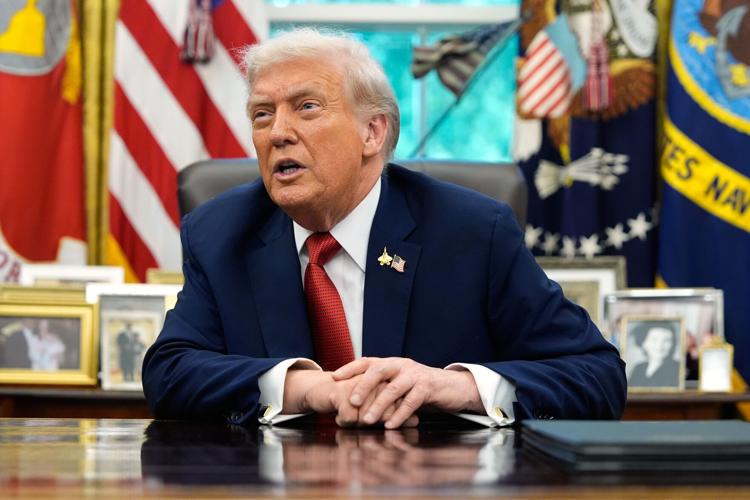Indie Game Studio Futures: How Tencent's Investment in ZA/UM & Supergiant Games Could Reshape Creativity The world of indie game development thrives on innovation and unique storytelling.

The world of indie game development thrives on innovation and unique storytelling. Studios like ZA/UM, creators of the critically acclaimed Disco Elysium, and Supergiant Games, known for Hades, Bastion, Transistor, and Pyre, have built their reputations on pushing creative boundaries. However, recent news of Tencent's Indie Game Investment into these studios has sparked debate and concern within the industry. As a veteran PC game developer, I've seen firsthand how these investments can play out, and I worry about the potential impact on the creative freedom and artistic vision of these talented teams. The question on everyone's mind is: how will Tencent's influence on indie creativity reshape the games we love?
ZA/UM, Supergiant, Tencent Impact: A Veteran's Perspective
Let's be clear: game development is expensive. Indie studios often operate on tight budgets, making external investment an attractive option. But when that investment comes from a behemoth like Tencent, it’s not just about securing funding; it’s about potentially altering the very DNA of the studio. ZA/UM, with its politically charged and narratively dense Disco Elysium, and Supergiant Games, celebrated for its inclusive character representation and signature art style, now face a future where their creative decisions could be influenced by Tencent’s priorities.
This image visually represents the tension between artistic vision and financial pressures in indie game development, emphasizing the conflict between creative vision and the looming financial realities.
Tencent ZA/UM Censorship Concerns: Will Disco Elysium Change?
Disco Elysium isn't your typical RPG. It fearlessly tackles complex political and social issues, challenging players to confront uncomfortable truths. The game's narrative depth and willingness to explore controversial themes are what made it so special. So, the central question becomes: How will Tencent influence Disco Elysium's narrative?
Tencent's past actions raise legitimate Tencent ZA/UM censorship concerns. There have been instances where Tencent has altered or removed content to comply with Chinese regulations. While I don't want to jump to conclusions, it's difficult to ignore the potential for censorship. Will ZA/UM be able to maintain its creative control and continue pushing boundaries, or will it be forced to compromise its vision to appease its investor? Will Tencent change Disco Elysium's political themes?

This image displays a screenshot from Disco Elysium, showcasing its unique art style and politically charged narrative, which may be at risk due to Tencent's investment.
Supergiant Games LGBTQ Representation Tencent: A Commitment at Risk?
Supergiant Games has consistently championed diversity and inclusion in its games. Hades, for example, features openly LGBTQ+ characters and relationships, earning the studio praise for its commitment to representation. However, with Tencent's investment, there are valid concerns about the future of these inclusive themes. Is Tencent censorship a risk for Supergiant Games?
Given Tencent's history, there is a worry: How does Tencent's Investment in indie game studios impact LGBTQ+ themes? Will Supergiant Games be able to continue representing diverse characters and stories without facing pressure to conform to more conservative standards? It's a question that weighs heavily on many fans of the studio's work.

This image displays a scene from Hades with inclusive character representation, a core element of Supergiant Games' identity that may be affected by Tencent's influence.
Indie Game Studio Tencent KPI Pressure: The Allure of DAU and ARPPU
Tencent is a data-driven company. It relies heavily on Key Performance Indicators (KPIs) like Daily Active Users (DAU) and Average Revenue Per Paying User (ARPPU) to measure the success of its games. The question is: How might Tencent's KPIs affect indie game studios?
This focus on KPIs could potentially lead to a shift in creative priorities at ZA/UM and Supergiant Games. Will the studios prioritize maximizing player engagement and monetization over creating unique and meaningful experiences? Will Tencent DAU and ARPPU impact on indie game design?
It's a valid concern. Indie studios are often driven by passion and artistic vision, not spreadsheets and metrics. The pressure to meet Tencent's financial expectations could stifle creativity and lead to games that feel more like products than works of art. The focus shift will be from unique storytelling towards maximizing player engagement and monetization strategies, potentially sacrificing the unique elements that made these studios stand out? How does Tencent's investment change indie game creative control?

This image represents the financial pressures of KPIs like DAU and ARPPU, which could impact indie game design under Tencent's influence.
Hades Game Monetization Strategy Tencent: A Slippery Slope?
Supergiant Games has always been praised for its fair and player-friendly monetization practices. Hades, for instance, offers a complete and satisfying experience without resorting to predatory microtransactions or pay-to-win mechanics.
But with Tencent's investment, there's a risk that this approach could change. Will Tencent push for more in-game purchases in Supergiant games? Could we see the introduction of loot boxes, battle passes, or other monetization strategies that detract from the core gameplay experience? While it's impossible to know for sure, it's a concern that many players share.

This image depicts gameplay from Hades, emphasizing the complete and satisfying experience that might be compromised by new monetization strategies under Tencent.
Tencent's Indie Game Investment Concerns and Risks: Is it worth it?
The Tencent indie game investment brings some risks. There's no question that Tencent's investment provides ZA/UM and Supergiant Games with financial security and access to a vast global market. However, this comes at a cost. The potential for censorship, creative compromise, and a shift towards more aggressive monetization strategies are real and valid concerns.

This image shows conceptual art of an indie game character, reflecting the potential artistic compromises that might result from Tencent's influence.
What happens to indie game values after Tencent investment?
We need to be realistic. It's important to recognize that ZA/UM and Supergiant Games ultimately made their own choices to partner with Tencent. Perhaps the benefits outweighed the risks in their eyes. It’s also possible that safeguards were put in place during negotiations to protect their creative freedom. However, the potential for negative consequences remains.

This image represents the indie game studio workspace, emphasizing the creative environment at stake due to the potential impact from Tencent's investment.
Alternative indie game funding models: Is there a better way?
Are there alternatives? Of course, there are other options for indie studios seeking funding, such as crowdfunding platforms like Kickstarter and subscription services like Patreon. These models allow studios to maintain greater creative control and connect directly with their fans. However, they also come with their own challenges, such as the need for continuous marketing and community engagement. Other indie game funding models include government grants, private investment from smaller firms who understand the industry better, and self-funding through smaller, less ambitious projects.

This image features a crowdfunding platform interface, symbolizing alternative funding models that indie studios can pursue to maintain creative control.
Tencent’s Impact on Indie Game Music
A little-discussed aspect of Tencent's investment is its potential impact on indie game music. Both Disco Elysium and Supergiant Games are known for their incredible soundtracks that are integral to the overall experience. Will Tencent's influence extend to dictating the style or content of the music in future games? It's something to consider.

This image depicts a music mixing board, symbolizing the potential impact Tencent might have on the music direction and style in future indie games.
The Future of Indie Games: A Call to Vigilance
The future of ZA/UM and Supergiant Games remains uncertain. Only time will tell how Tencent's investment will ultimately shape their creative output. As players and fans, we have a responsibility to stay informed and advocate for the kind of games we want to see. We must support indie game developers who prioritize artistic vision and creative freedom over profit. By doing so, we can help ensure that the indie game scene remains vibrant, diverse, and truly independent.
So, what do you think? Let us know in the comments, and be sure to check out our reviews of Disco Elysium and Hades to see why these studios are so special. Consider supporting these and other indie studios directly through their websites or platforms like itch.io. The best indie games not funded by Tencent are worth supporting.